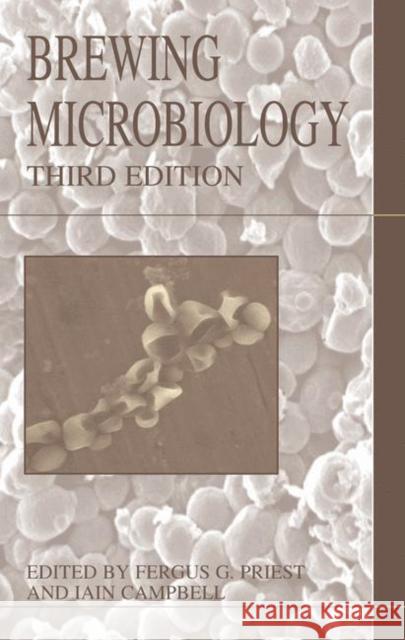Brewing Microbiology » książka
Brewing Microbiology
ISBN-13: 9780306472886 / Angielski / Twarda / 2002 / 399 str.
Much has happened in the brewing industry since the last edition of this book was published in 1996. In particular, there has been substantial con solidation of larger brewing companies as major multinational concerns, and at the other end of the spectrum the microbrewing scene in various parts of the world has become established as a sustainable enterprise. For those involved in the scientific and technical aspects of fermented bever age production the changes have been no less daunting. The complete genome sequence of Saccharomyces cerevisiae has been determined and studies are underway in numerous laboratories throughout the world to unravel the expression of the genome (transcriptomics and proteomics) and understand exactly "how a yeast works. " This will undoubtedly con tribute to our understanding of yeast fermentation and flavor generation in a revolutionary way because it will enable the simultaneous monitor ing of all genes in the organism during the fermentation. In Chapters 2 and 3 of this volume Colin Slaughter and John Hammond bring the reader up-to-date in this rapidly moving area and cover the remarkable achievements of modern biochemistry and molecular biology. lain Campbell has also revised the systematics of culture and wild yeasts in Chapter 7. The other major technical change since the last edition of this book is the introduction of molecular characterization and detection of microor ganisms based largely, but not exclusively, on the polymerase chain reac tion (PCR) for amplification of specific DNA fragments."











